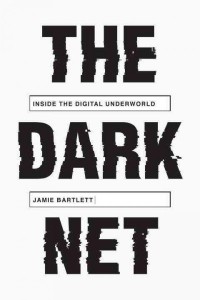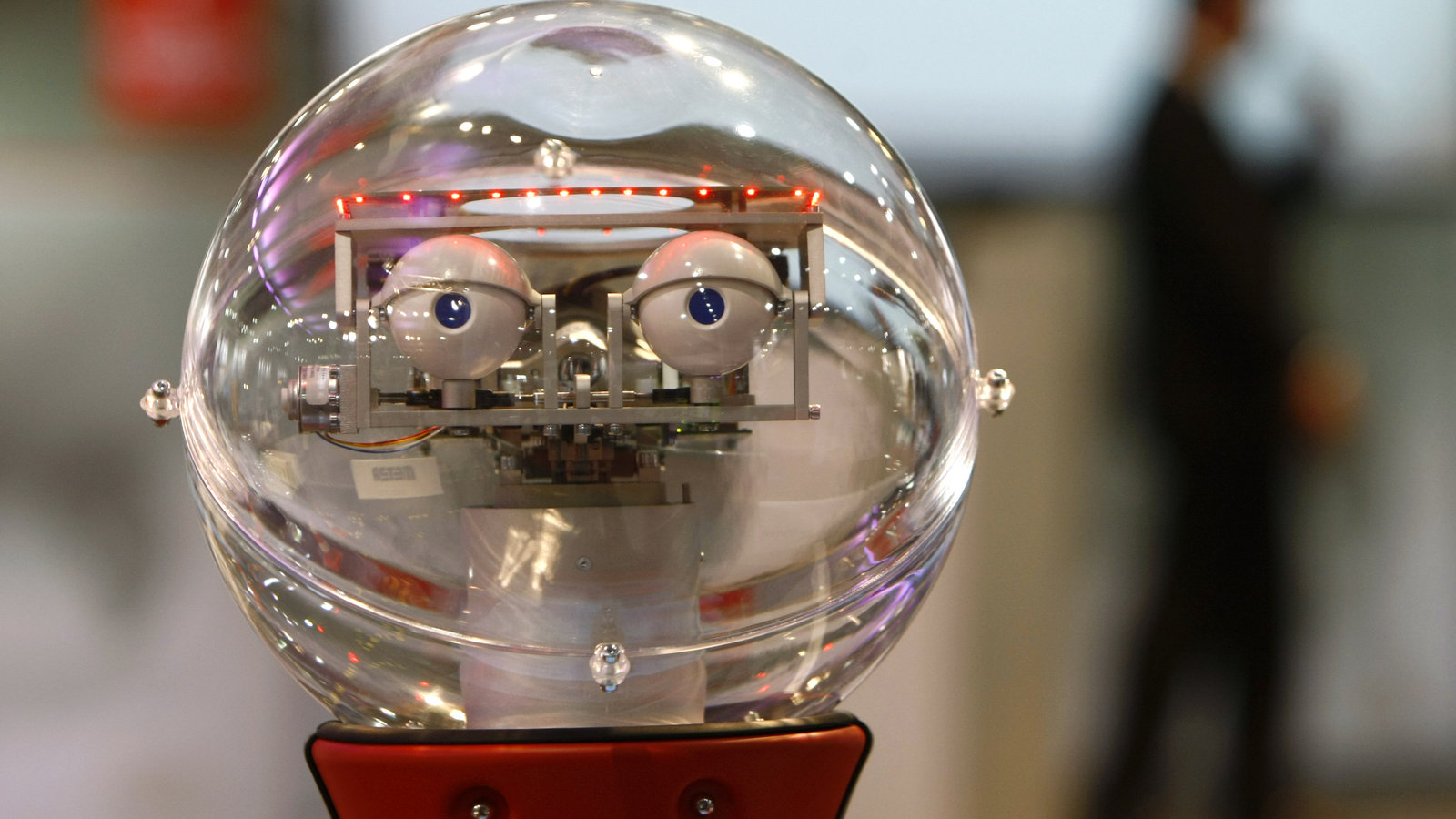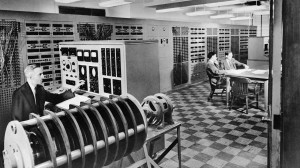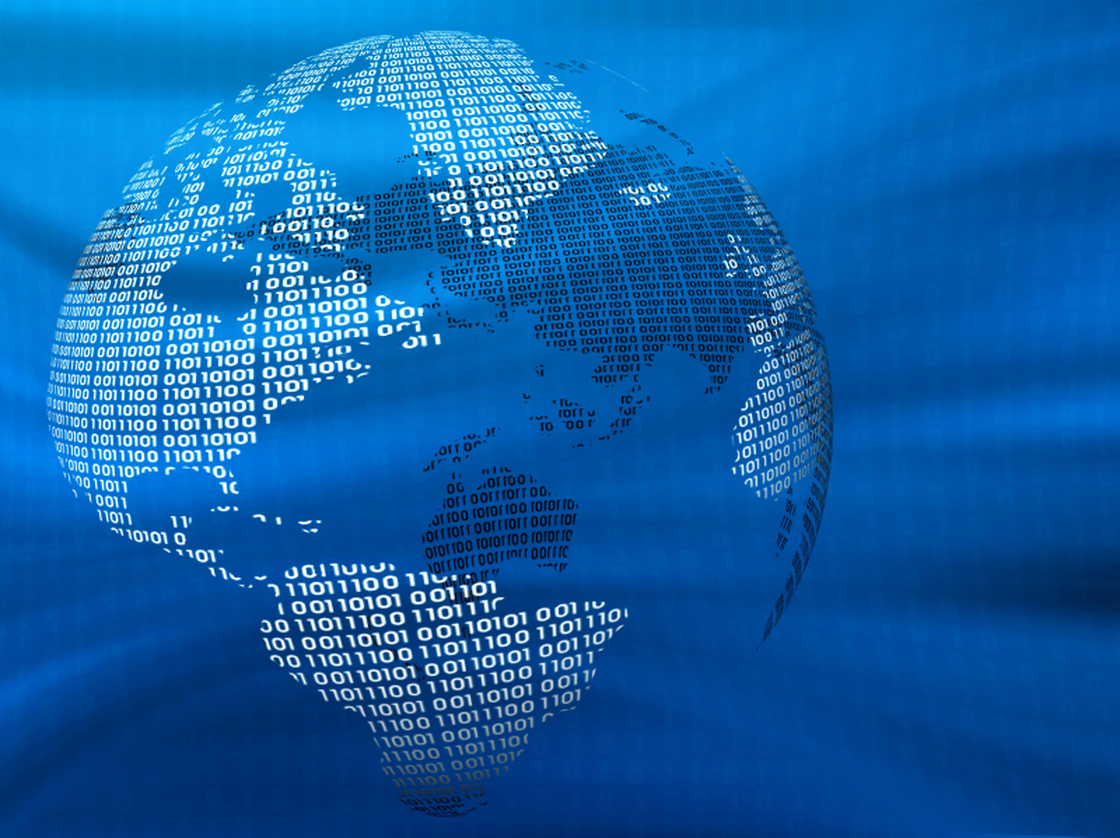The Freqonomics podcast explores “the hidden side of everything.” This particular episode does a masterful job of charting the Internet’s trajectory from its inception (and before) to the present. Without being overly technical, it outlines some key trends that may threaten the original vision of the net as an open communication platform for everybody—and may also have profound impact on our greater society.
Category: -Context
 There are huge chunks of the Internet that can’t be found with your standard web browser. Criminals, anarchists, and trolls use encryption-enabled browsers to conduct their business anonymously in these dark corners of the net. In this fascinating Fresh Air interview, author Jamie Bartlett talks about his experiences in the dark net.
There are huge chunks of the Internet that can’t be found with your standard web browser. Criminals, anarchists, and trolls use encryption-enabled browsers to conduct their business anonymously in these dark corners of the net. In this fascinating Fresh Air interview, author Jamie Bartlett talks about his experiences in the dark net.
npr.org/sections/alltechconsidered/2015/06/03/411476653/infiltrating-the-dark-net-where-criminals-trolls-and-extremists-reign

More jobs every day are being automated—done by machines rather than humans. In this thought-provoking Fresh Air interview, Silicon Valley executive Martin Ford says that all kinds of jobs—even many that we assume are machine-proof—are threatened by advances in hardware and software. The implications for our economy and our society are far-reaching.
http://www.npr.org/sections/alltechconsidered/2015/05/18/407648886/attention-white-collar-workers-the-robots-are-coming-for-your-jobs
Many people believe that privacy is a thing of the past. It’s true that our networked world makes it harder to keep secrets. But there are many things you can do to protect your privacy online. This Huffington Post article clearly outlines some quick fixes you can make in a few minutes.
 War and technology have been intertwined throughout human history. Today’s digital technology is creating a whole new form of war that’s all but invisible to most of us. In his book @War, Shane Harris describes the war that’s waged on the Internet and describes the relationship between government and the tech industry that makes that war possible. In this NPR Fresh Air program he’s interviewed by Terry Gross.
War and technology have been intertwined throughout human history. Today’s digital technology is creating a whole new form of war that’s all but invisible to most of us. In his book @War, Shane Harris describes the war that’s waged on the Internet and describes the relationship between government and the tech industry that makes that war possible. In this NPR Fresh Air program he’s interviewed by Terry Gross.
The name “3D printer” doesn’t come close to evoking the transformative potential of this rapidly emerging technology. In this intriguing TED Talk, Avi Reichental describes how 3D printers are revolutionizing medicine, manufacturing, and more. How does it change our world when complexity is free?
[ted id=2026 lang=en]
Nicholas Negroponte has been predicting—and creating—the future for decades. In this TED talk he walks us through those decades, pointing out what the future looked like from many vantage points in the past, and ending with a startling prediction. Given his track record for correctly predicting the future, do you think he’s right on this one?
[ted id=2043 lang=en]
ted.com/talks/nicholas_negroponte_a_30_year_history_of_the_future
 In Digital Planet we tell the stories of many of the pioneers of the digital age—people who invented or discovered ways of doing things that weren’t previously possible. In his book The Innovators, Walter Isaacson weaves many of those stories, and others, together into a larger story—the story of the creation of the Internet. In this Fresh Air interview, he makes it clear that great changes often result from the work of many people over time.
In Digital Planet we tell the stories of many of the pioneers of the digital age—people who invented or discovered ways of doing things that weren’t previously possible. In his book The Innovators, Walter Isaacson weaves many of those stories, and others, together into a larger story—the story of the creation of the Internet. In this Fresh Air interview, he makes it clear that great changes often result from the work of many people over time.
npr.org/blogs/alltechconsidered/2014/10/06/353269811/how-the-cold-war-and-george-orwell-helped-make-the-internet-what-it-is
 As one of the most innovative and profitable companies on the planet, Apple makes headlines when it makes announcements. This week Apple announced several important new products, each of which represents trends in a fast changing industry. Larger iPhones bridge the gap between smart phones and tablets. A mobile payments system designed to bypasses credit cards and protect privacy and security of users. And Apple’s long-awaited entry into the wearable computer market that has humbled several other companies. Technology writer Steven Levy’s thought-provoking piece for Medium suggests that the Apple watch may signal the beginning of a new, much more intimate type of interface between humans and their digital devices.
As one of the most innovative and profitable companies on the planet, Apple makes headlines when it makes announcements. This week Apple announced several important new products, each of which represents trends in a fast changing industry. Larger iPhones bridge the gap between smart phones and tablets. A mobile payments system designed to bypasses credit cards and protect privacy and security of users. And Apple’s long-awaited entry into the wearable computer market that has humbled several other companies. Technology writer Steven Levy’s thought-provoking piece for Medium suggests that the Apple watch may signal the beginning of a new, much more intimate type of interface between humans and their digital devices.
 The Internet was created in the US, but you’d never know it based on the quality and price of service US Internet users get. In this NPR Fresh Air interview, author and professor Susan Crawford explains why US service is so slow, so expensive, and so inadequate for building future prosperity.
The Internet was created in the US, but you’d never know it based on the quality and price of service US Internet users get. In this NPR Fresh Air interview, author and professor Susan Crawford explains why US service is so slow, so expensive, and so inadequate for building future prosperity.
npr.org/blogs/alltechconsidered/2014/02/06/272480919/when-it-comes-to-high-speed-internet-u-s-falling-way-behind